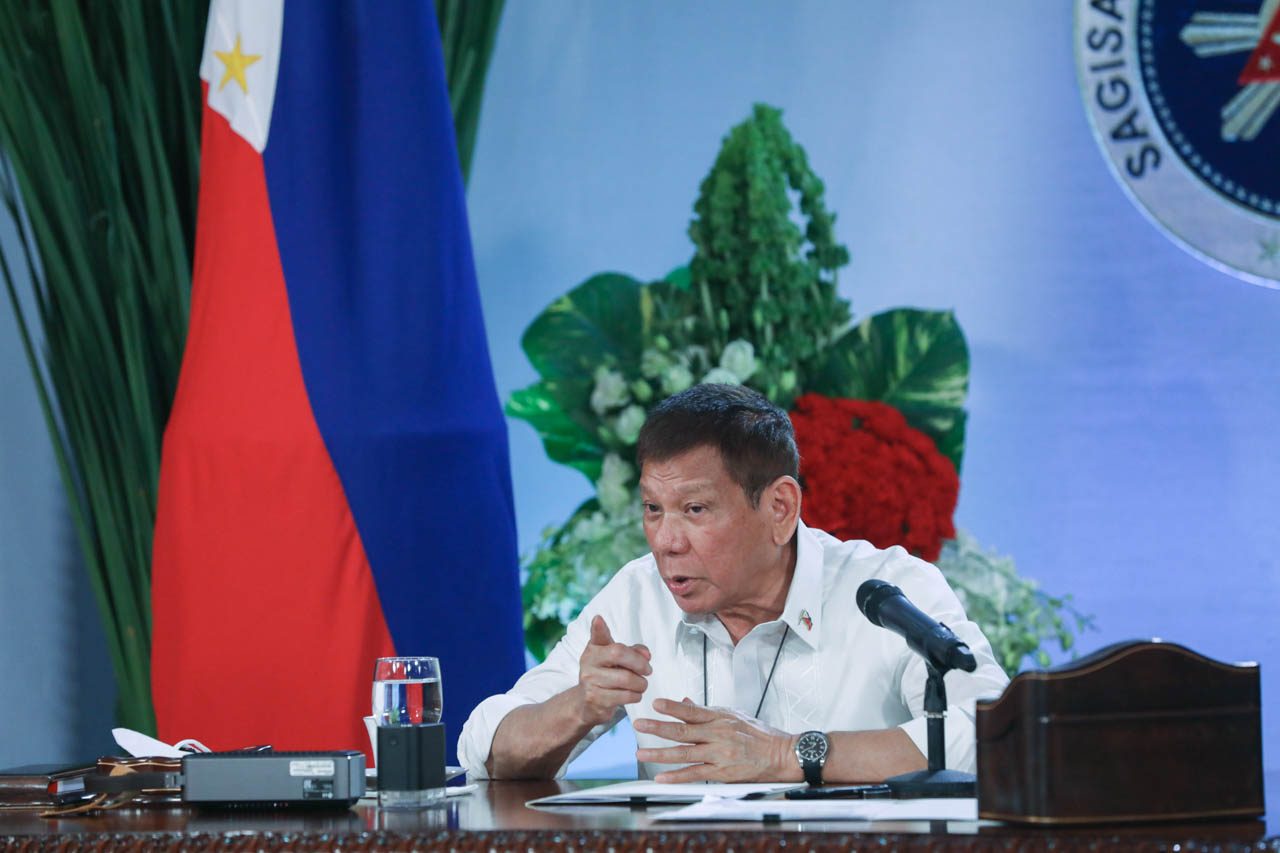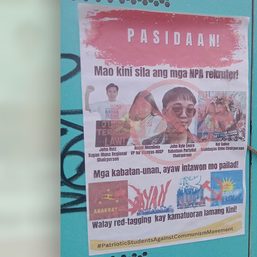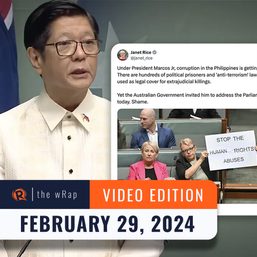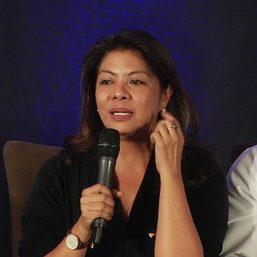SUMMARY
This is AI generated summarization, which may have errors. For context, always refer to the full article.

Philippine President Rodrigo Duterte thumbed down holiday ceasefire between government troops and the New People’s Army, the armed wing of the Communist Party of the Philippines.
In his remarks during a meeting with Cabinet members on Monday, December 7, Duterte said there will never be such a ceasefire while he is President.
“There will be no ceasefire ever again under my term as President. For all intents and purposes, the ceasefire is dead,” said Duterte from the Malacañang Golf Clubhouse.
The military had recommended to Duterte that no Christmas or New Year ceasefire be declared this holiday season.
It would be the third time that no holiday ceasefire is observed by the warring sides.
Following Duterte’s ambitious peace initiative with the guerrillas in 2016, both sides held a Christmas and New Year ceasefire that year, spilling over to early January 2017.
But they did not cease hostilities during the 2017 and 2018 holidays as the peace negotiations reached a difficult stage. Efforts to revive the talks came about in 2019, thus a 16-day ceasefire that year that began on December 23, 2019.
Duterte: CPP members seek overthrow of government
In his Monday speech, Duterte was back to red-tagging progressive groups and lawmakers, including Bayan Muna Representative Carlos Zarate.
He threatened to name “all” members of the National Democratic Front of the Philippines, the CPP’s political arm.
Duterte also declared that “all” members of the CPP “are conspiring to overthrow the government of the Philippines.” Sedition, which covers violent acts against the government, and inciting to sedition are crimes under the Revised Penal Code.
The President was thus implying that membership to the CPP could be seen as a crime.
Yet mere membership to the CPP is no longer a crime, since the Anti-Subversion Law was repealed 3 decades ago.
Interior Secretary Eduardo Año wants to restore the Anti-Subversion Law. Justice Secretary Menardo Guevarra, however, said CPP membership should not be a crime “unless overt criminal acts are committed,” and that a strengthened anti-terrorism law would be enough to run after threats to the government.
Duterte signed a new anti-terrorism law last July which defines terrorism as acts intended to “create a serious risk to public safety.”
Over 30 petitions have been filed against the law as human rights activists, journalists, lawmakers, artists, and other groups warn that the measure can be used to clamp down on legitimate dissent and freedom of speech. – Rappler.com
Add a comment
How does this make you feel?




![[OPINION] Jhed and Jonila’s fight for justice](https://www.rappler.com/tachyon/2024/02/TL-jhed-and-jonilla.jpg?resize=257%2C257&crop=411px%2C0px%2C1080px%2C1080px)

![[The Slingshot] Alden Delvo’s birthday](https://www.rappler.com/tachyon/2024/04/tl-alden-delvo-birthday.jpg?resize=257%2C257&crop=263px%2C0px%2C720px%2C720px)
![[EDITORIAL] Ang low-intensity warfare ni Marcos kung saan attack dog na ang First Lady](https://www.rappler.com/tachyon/2024/04/animated-liza-marcos-sara-duterte-feud-carousel.jpg?resize=257%2C257&crop=294px%2C0px%2C720px%2C720px)
![[Newsstand] Duterte vs Marcos: A rift impossible to bridge, a wound impossible to heal](https://www.rappler.com/tachyon/2024/04/duterte-marcos-rift-apr-20-2024.jpg?resize=257%2C257&crop=278px%2C0px%2C720px%2C720px)

There are no comments yet. Add your comment to start the conversation.